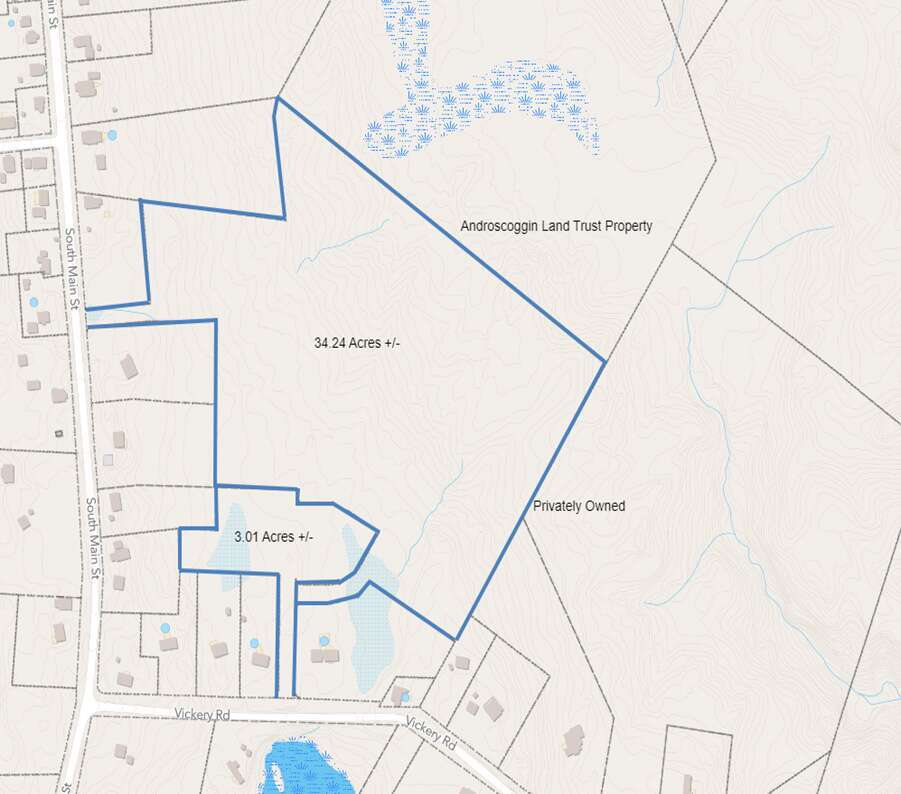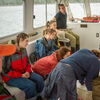
Auburn unveils plans for mixed-income housing project
 Courtesy / City of Auburn
The proposal for a 100-unit mixed-income housing project, with a child care facility and green space, has a preliminary budget estimate of $46.1 million.
Courtesy / City of Auburn
The proposal for a 100-unit mixed-income housing project, with a child care facility and green space, has a preliminary budget estimate of $46.1 million.
The city of Auburn is considering a public-private proposal to create 100 units of mixed-income housing at an estimated cost of $46.1 million.
The proposal calls for constructing 48 single-family homes, eight owner-occupied duplexes and three apartment buildings on 62 acres of city-owned land. Seventy percent of the homes and apartments would be allocated to households at or below the area median income for a minimum of 20 years.
Staff from the city's Business and Community Development Department presented the proposal Monday in a workshop with the Auburn City Council.
The project, called Winter Oaks, is in the New Auburn neighborhood at Vickery Road and South Main Street and comprises two adjacent properties of 3.01 acres and 34.24 acres.
The project would be spearheaded by developer Homes For All LLC, a woman- and minority-owned business founded by Fatuma Hussein. Hussein is an Auburn resident with a history of addressing housing disparities by providing translation and social services, and employs an advisory council of housing developers with backgrounds in nonprofit and for-profit housing development.

Auburn would also partner with the Androscoggin Land Trust, Androscoggin Savings Bank, the Androscoggin County Emergency Management Agency and the Auburn-Lewiston YMCA to develop the parcel into a neighborhood that incorporates environmental conservation, outdoor education, affordable housing, child care and community enrichment programs.
Funding would include a $9.5 million grant Auburn is seeking from the U.S. Department of Housing and Urban Development to cover infrastructure costs such as installation of roads, sidewalks and public utilities. The budget also includes an applicant match of $4.1 million, a state share of $3.3 million, private financing of $13.94 million and program income of $15.26 million.
The Androscoggin Land Trust would oversee management of 25 acres of adjacent conservation land, providing residents with access to hiking trails. In addition, space within the development would be set aside for parks, bicycle lanes, walking trails and an outdoor educational center. The YMCA of Auburn-Lewiston said it would establish a child care facility within the development.
The city said it has established a partnership with a financial institution specializing in Sharia-compliant and culturally sensitive home loans to help advance goals of promoting racial equity.
“This is a wonderful example of government working with private developers and community partners to create innovative, transformative projects that will enhance our housing choices,” Auburn Mayor Jason Levesque said in a news release.
Hussein said, "As an advocate for a more equitable Maine and community, the Winter Oaks Housing Development reflects Auburn's progress and our hard work towards improving our overall quality of life and building healthier and sustainable communities for everyone through housing and workforce."
The proposed development site was approved in the 1990s for a 200-unit subdivision, Glen Holmes, director of business and community development, told the council.
Zachary Maher, the department’s deputy director, said the 1990s plan was pared down based on property that’s since been put into conservation and in order to create a neighborhood primarily focused on home ownership.
“We wanted people to be local, to have a buy-in as property owners,” he said. “And that also starts to create generational wealth for first-time homebuyers who start to invest in something that they can start to hand down to families.”
The development is in the concept phase. Among next steps, the council must authorize the department to move forward with its grant application.










0 Comments